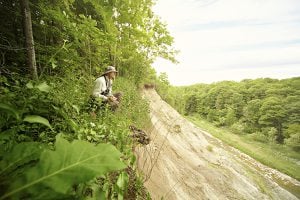The number of charges and fines handed out in Banff National Park and other mountain parks is expected to rise this year, as more visitors take advantage of the free entry afforded by Parks Canada’s sesquicentennial Discovery Pass.
“Clearly the highway system in the mountain parks — it is going to be terrible next summer all summer long,” Ben Gadd, a retired nature guide and author of Handbook of the Canadian Rockies told the Canadian Press in January. “When you have that situation and animals trying to cross, there are going to be more accidents, more animals killed.”
Gadd told the Canadian Press that he was also concerned about crowded attractions, trash and people feeding or getting too close to wildlife — conditions and behaviours that could lead to charges being laid.
Back in October, Banff National Park made the news: the Calgary Herald reported that park wardens laid 1,070 charges in the decade between Jan. 1, 2006, and May 4, 2016 — more than any other national park in the country during the same period.
“Banff is our busiest national park so that does mean more potential for incidents,” Tamaini Smith, director of Parks Canada’s law enforcement branch, told the Herald in the paper’s story about a federal report that breaks down how many people were charged in 38 of Canada’s 46 national parks, the cost of the average fine and the most common offences during the past decade. Pacific Rim National Park Reserve, on the west coast of Vancouver Island, had the second highest number of charges, with 534, while Alberta’s Jasper National Park had the third highest, with 277.
Snaith told the Herald that overall “There’s about four [infractions] per 100,000 visitors. It’s really a very small number of visitors who are getting charged and breaking the law.”
More than three million people have applied for the Discovery Pass since it became available in December.





